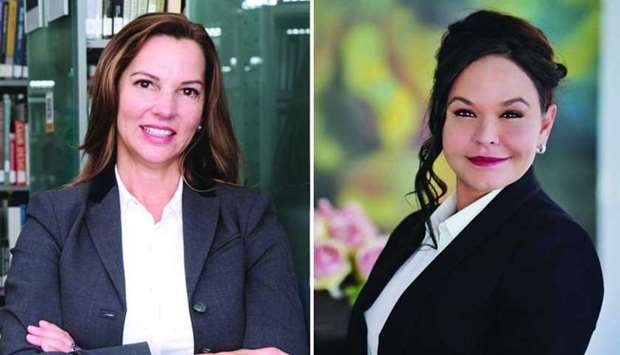Qatar Foundation’s Education City is uniquely placed to educate students for global competence and prepare graduates to thrive in a more interconnected world, finds a study by scholars at VCUarts Qatar and Georgetown University in Qatar (GU-Q) on the important role internationalised higher education institutions play in shaping and transforming societies through experiential global learning.
The findings appear in chapter of a book titled “Current Understandings of Global Competency in Shaping Globally Engaged Citizens,” which was co-authored by Dr Jacqulyn Ann Williams, assistant professor and head of teaching, learning, and strategic initiatives at VCUarts Qatar, and Dr Christine Schiwietz, assistant dean for curricular and academic advising at GU-Q.
“In our globalised world, students need to be equipped with global competence. This refers to a set of skills, attitudes, experiences, and values around issues with local and global connections,” explained Dr Schiwietz. “Education City is a visionary model and very unique across university branch campus programmes. Intertwining world class faculties across disciplines into a collaborative blend of programmes, courses, and exchanges offers an unparalleled mosaic for students to learn and flourish into global citizens.”
The initial case study research, conducted over one-and-half years, surveyed administrators and faculty across three IBC institutions in Education City, GU-Q, Northwestern in Qatar, and VCUarts Qatar, to learn how educators shape the learning environment to facilitate undergraduates’ global competency and intercultural maturity.
“Our research highlighted several important programmatic and campus conditions as well as educational practices that are conducive to promoting undergraduates’ global competence and intercultural maturity that may be applicable to other institutions seeking to further integrate and operationalise global and intercultural learning as strategic forms of internationalisation,” said Dr Williams.
Findings from their study indicated that students benefited from the educators’ international backgrounds and experiences, particularly their established international networks and partnerships which were leveraged to immerse students and bring them into direct contact to learn from and with culturally diverse others.
This is especially relevant to Qatar as the Qatar Foundation National Development Strategy includes a target of equipping all students with the knowledge and skills to contribute to society and to respect other cultures while maintaining a strong sense of their own values and identity.
The findings appear in chapter of a book titled “Current Understandings of Global Competency in Shaping Globally Engaged Citizens,” which was co-authored by Dr Jacqulyn Ann Williams, assistant professor and head of teaching, learning, and strategic initiatives at VCUarts Qatar, and Dr Christine Schiwietz, assistant dean for curricular and academic advising at GU-Q.
“In our globalised world, students need to be equipped with global competence. This refers to a set of skills, attitudes, experiences, and values around issues with local and global connections,” explained Dr Schiwietz. “Education City is a visionary model and very unique across university branch campus programmes. Intertwining world class faculties across disciplines into a collaborative blend of programmes, courses, and exchanges offers an unparalleled mosaic for students to learn and flourish into global citizens.”
The initial case study research, conducted over one-and-half years, surveyed administrators and faculty across three IBC institutions in Education City, GU-Q, Northwestern in Qatar, and VCUarts Qatar, to learn how educators shape the learning environment to facilitate undergraduates’ global competency and intercultural maturity.
“Our research highlighted several important programmatic and campus conditions as well as educational practices that are conducive to promoting undergraduates’ global competence and intercultural maturity that may be applicable to other institutions seeking to further integrate and operationalise global and intercultural learning as strategic forms of internationalisation,” said Dr Williams.
Findings from their study indicated that students benefited from the educators’ international backgrounds and experiences, particularly their established international networks and partnerships which were leveraged to immerse students and bring them into direct contact to learn from and with culturally diverse others.
This is especially relevant to Qatar as the Qatar Foundation National Development Strategy includes a target of equipping all students with the knowledge and skills to contribute to society and to respect other cultures while maintaining a strong sense of their own values and identity.

